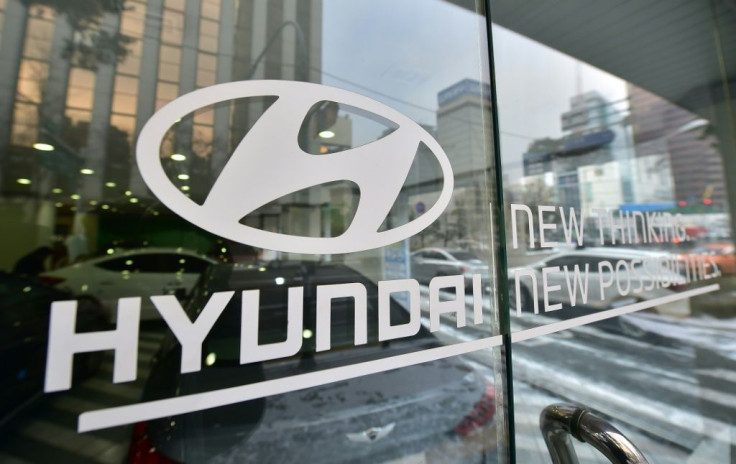Coronavirus Update: Hyundai Shuts Down South Korea Auto Plants Over Parts Supply Disruption

KEY POINTS
- Hyundai has 7 auto plants in South Korea
- Many foreign automakers have already shut down their plants in China
- Hyundai will pay its workers 70% of their salaries during the shutdown
Automaker Hyundai Motor said it will temporarily suspend production in its native South Korea since the coronavirus outbreak in China has disrupted its auto parts supply chain.
Most of Hyundai’s factories in South Korea will shut down starting Feb. 7, with some production lines slate to restart on Feb. 11 or Feb. 12.
The decision came in the wake of three-hour talks between the company’s labor union and management. On Monday, Hyundai’s President Ha Eon-tae had warned that closing factories was “inevitable” due to the “disruption of parts supplies” from China.
Hyundai is South Korea’s largest automaker.
“The company is reviewing various measures to minimize the disruption of its operations, including seeking alternative suppliers in other regions,” the company said in a statement. “Hyundai Motor will closely monitor developments in China and take all necessary measures to ensure the prompt normalization of its operations.”
As a result, Hyundai became the first major auto manufacturer to halt production outside of China. (Various other foreign automakers, including Tesla (TSLA), Ford (F), Nissan, Peugeot Citroen, Toyota (TM), General Motors (GM), Honda Motor (HMC) and Hyundai itself have already shut down some of their auto plants inside mainland China in accordance with Chinese government guidelines).
Hyundai has seven factories in South Korea – including five in the city of Ulsan – these seven facilities account for about 40% of the company’s total global output.
Hyundai management and its labor union have agreed to a 70% wage payment for workers during the period of suspension.
Hyundai’s labor union also said that a worker at a Chinese factory of one of its parts suppliers came down with the virus.
The suspension will likely delay delivery of its popular sport utility vehicles, such as the Palisade and Genesis GV80. Hyundai also has been developing a new version of its popular Sonata sedan.
Hyundai just had its best financial quarter in more than two years, partly due to increased sales of its SUVs.
Hyundai’s subsidiary Kia Motors has also started scaling back production at its Hwaseong and Gwangju plants.
“Hyundai and Kia may be more affected as they tend to import more parts from China than other global automakers,” said Lee Hang-koo, senior researcher at the Korea Institute for Industrial Economics & Trade.
European automakers have only endured production losses in their Chinese factories, while their European and U.S. plants are running smoothly since they use local supplies.
Over the past two decades, Hyundai has invested heavily in China, constructing huge production capacity on the mainland.
“South Korean parts makers followed and built their own facilities along with Hyundai,” Lee added.
In 2019, South Korea imported $1.56 billion worth of auto parts from China in 2019, up from $1.47 billion in the prior year.
Hyundai is particularly hampered by a lack of wiring harnesses, which the company imports principally from China.
The Korean Herald reported that “handmade wiring harnesses need to be laid on the floor of vehicles during their initial assembly. Because every car model uses a different wiring harness, inventories are not usually accumulated due to difficulties in [their] management.”
Two South Korean harness suppliers, Kyungshin and Yura Corp., said they were seeking to increase production at their factories in South Korea and Southeast Asia in order to make up for the disruptions in supply from China.
IHS Markit has warned that the spread of the virus will cause more auto plants in China to shut down – if these production interruptions last until mid-March, output may fall by 1.7 million vehicles.
“The industries with long tails in the supply chain, such as automobiles and information technology, will suffer first,” said Chung In-kyo, a professor at Inha University in Incheon, South Korea. “But other manufacturing sectors may also gradually see disruption in their supply chains because almost everything is produced in China.”
© Copyright IBTimes 2025. All rights reserved.





















